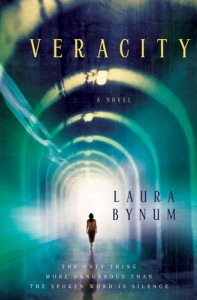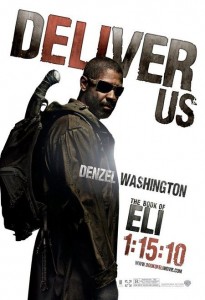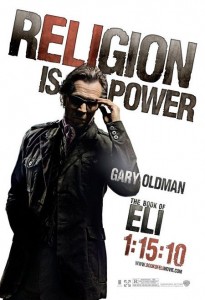Author: Laura Bynum
Genre: Speculative Fiction, Dystopian, Thriller
Publisher: Pocket Books
Publication Date: January 2010
Hardcover: 376 pages
Harper Adams was six years old in 2012 when an act of viral terrorism wiped out one-half of the country’s population. Out of the ashes rose a new government, the Confederation of the Willing, dedicated to maintaining order at any cost. The populace is controlled via government-sanctioned sex and drugs, a brutal police force known as the Blue Coats, and a device called the slate, a mandatory implant that monitors every word a person speaks. To utter a Red-Listed, forbidden word is to risk physical punishment or even death.
But there are those who resist. Guided by the fabled “Book of Noah,” they are determined to shake the people from their apathy and ignorance, and are prepared to start a war in the name of freedom. The newest member of this resistance is Harper — a woman driven by memories of a daughter lost, a daughter whose very name was erased by the Red List. And she possesses a power that could make her the underground warriors’ ultimate weapon — or the instrument of their destruction.
In the tradition of Margaret Atwood’s The Handmaid’s Tale, Laura Bynum has written an astonishing debut novel about a chilling, all-too-plausible future in which speech is a weapon and security comes at the highest price of all.
Stand Alone or Series: Stand alone novel
How Did I Get This Book: Review Copy from the publisher
Why Did I Read This Book: That synopsis floored me – a future dystopian techno-thriller. Clearly, I could not resist. Not to mention the fabulous reviews that started to pop up around the interwebs…
Review:
In 2012, the United States and much of the rest of the world was devastated by a deadly pandemic. Following those dark, fear-filled years, a new government emerged to preserve law and order. In 2045, The Confederation of the Willing rules the nation with an iron fist. In exchange for inoculations against the plague and the comfort of stability, people have given up their basic human freedoms. The pseudo-religious, totalitarian Confederation has a list of strict, unyielding rules. Every move a citizen makes is monitored since childhood; every word they utter recorded and evaluated. Every man, woman and child in the Confederation is implanted with a “slate” – a biomechanical implant that sends severe shocks should its host say a “red-listed” (that is, forbidden) word. There is no more music, or art, or creative expression, and even words are deleted from human consciousness. Words like “courage,” “poem,” “ego,” “freedom,” “democracy,” and “veracity” are taboo, punishable by state-sanctioned rape, torture, and death.
Harper Adams was a six-year-old girl when the pandemic struck, and since then has been elevated to the position of Alpha Monitor. As a powerful, gifted “sentient” – one who has the ability to read auras, emotions, and histories of people and objects – the state has forced her into its employ ever since she was eighteen. As a powerful monitor, Harper has seen and been a part of terrible things, catching and identifying “terrorists” for the Confederation, against her will. Harper has been willing to deal with the stress and guilt of her job in order to keep her daughter, named Veracity, safe and healthy, but when her best friend and fellow Monitor Candace is discovered as a member of the rebellion and is killed along with her own daughter, Hannah, Harper knows she can no longer head down the same path. Approached by members of the mysterious rebellion – a group of dedicated individuals whose ideology is centered around the mysterious and Confederation banned Book of Noah – Harper decides she can no longer stand idly by and let what happened to Hannah and Candace happen to her daughter. Harper is determined to break her slate and to become a member of the revolt, and to break the shackles of fear and power that the government has over its people.
Veracity, the debut novel from Laura Bynum, is an ambitious undertaking. Following in the footsteps of dystopian works such as George Orwell’s 1984, Ray Bradbury’s Fahrenheit 451, Octavia Butler’s Parable of the Sower, and written in the style of Margaret Atwood’s The Handmaiden’s Tale, Veracity is a solid, sure-footed entry in one of my favorite subgenres of speculative fiction. Ms. Bynum has a beautiful, distinctly poetic style that makes Veracity a lush, eminently readable book, despite its non-linear narrative style. The book itself is split into nine parts, each introduced by a particular “red-listed” word. Though the story only truly encompasses a tiny, final stage of the rebellion and lacks breakneck action, it’s a skilled, beautiful and even-paced read.
Ms. Bynum allows her novel to unfold through the perspective of first person narrator Harper Adams, both in “real time” (2045, as Harper makes her break with the Confederation and joins the resistance) and in a series of interspersed flashbacks from Harper’s childhood and the dramatic events leading up to her decision to rebel against the government. The narrative style, reminiscent of Margaret Atwood as mentioned above, is stunningly effective and surprisingly not confusing at all. Rather, the back and forth narration gives readers a closer bond and an understanding of narrator Harper, allowing us to see why she’s made the decisions she has. There’s a sense of intimacy and empathy with Harper as she struggles to save her daughter. In fact, the most touching, believable, human thing about Harper was her emotional devotion to her child; the fact that all of this, the danger she faces each day is for her little girl – a girl whose very name the government took away. Ms. Bynum’s other characters are similarly fleshed out and sympathetic – in particular, I found myself loving Ezra, the hardened prostitute devoted to the resistance (and to giving Harper a hard time), and a particular Blue Coat (the goon-like police officers of the state, given free reign to rape, torture, maim and murder), whom I will not name or spoil.
I truly enjoyed Veracity, especially for the vision of a dystopian totalitarian state that Ms. Bynum was able to create. The idea of “slates,” of a government that embodies censorship to the point of eliminating very words from the human consciousness, is a very powerful, terrifying thing. Perhaps one of the most terrifying things of all about Veracity is that this dystopian future Ms. Bynum has created does not seem so implausible. In times of fear and crisis, human liberties are traded for stability, and this cognizant, post-9/11 novel takes that premise to a truly frightening extreme. Also, I should mention that there is a strong super-natural/paranormal element to the novel as well in the telekinetic and psychic sort of powers that Harper has as a “sentient.” Her ability to read auras and “see colors” identifies her as a very important person to both the Confederation and to the resistance, and she plays a pivotal part in the final showdown because of her unique abilities. While this could very easily have been a breaking point for the novel – the juxtaposition of these very tangible, very real fears side by side these more fantastical elements – Ms. Bynum integrates the supernatural with the mundane seamlessly, and makes it an integral part of Harper’s character, and to the story at large.
There was a lot to love with Veracity, and I finished the book feeling fulfilled and rewarded. Yes, there were also a few drawbacks, most notably a tendency toward some stuffy high-handedness towards the end of the novel (rousing speeches about the greatness of democracy and the american nation that was, etc). There’s also a little bit of the deus ex machina to the ultimate battle (everything seemed to unfold so easily, in comparison to how difficult everything else was earlier in the book), and I wish that more time had been devoted to that dramatic conclusion. But these quibbles are minor overall. I found Veracity to be every bit as good as advertised, and eagerly look forward to reading more from Laura Bynum in the future.
Notable Quotes/Parts: From Chapter 1:
AUGUST 4, 2045, EARLY AFTERNOON.
The deeper I get into the prairie, the more I realize that what I’ve been told about the wastelands is false. The trees here are green. The crops, tall and heavy with corn. There are no black clouds threatening to drip acid onto my car, no checkpoints full of frothing police ready to execute every onerous code they see fit. I haven’t seen a Blue Coat since Wernthal. God willing, it will stay that way.
An old farmer is hitchwalking down a line of corn. I see him in my rearview mirror as a blotch of spoiled yellow. This is how our world considers the inhabitants of this land. Spoiled and decrepit, not useful. But neither are they considered clever enough to pose a threat. So they enjoy the otherwise restricted bounty of nature. A wide-open sky. Grass. Neon-free, unfettered space. I envy them this, but only so much. We live in different prisons, but in prisons nonetheless. Theirs is made up of memories of the beforetime. Mine, of concrete walls and security checkpoints, of no birdsong and no breeze.
Fewer line boards are posted alongside the roads out here. Just one every few dozen miles instead of the standard one per block. Posters of non-sexually attractive housewives blink as I drive by. Stay Happy, at mile marker 1. Stay Healthy, at mile 32. Remember the Pandemic. Mile marker 78.
Used to be something different. Honor Those Who’ve Fallen, to communicate the whole of it. But the word honor got too many people thinking. The concept sparked a small fire in those of us not quite doused out, and we began to discuss the dishonorable things required of all citizens living here, things that didn’t get printed on line boards. And so in small, quiet ceremony, in the ripping down of a hundred thousand posters, honor had the honor of being our first Red Listed word. We woke the next morning to Safety First and We Don’t Want to Go Back to the Way Things Were, Do We?
The countryside is more beautiful than I remember, even like this. Bales of trash instead of baled-up hay. Abandoned farmhouses dotting the land like weeping sores. I can’t stand to see their burnt or age-worn structures, or their insides seeping out onto the unmowed lawns. I was born in the country, as were my best memories. I won’t desecrate them by noticing these shells of civilization zipping past my car windows. In fact, I’ll go faster. It’s unlikely Blue Coats will pick me up on the way to my break site anyway. They won’t be out patrolling in the heat, in the wastelands where nothing happens. They’ll come later when the Fatherboard sees I’ve gone rogue. It will be the most excitement they’ve had in months.
Maybe they won’t be carrying guns. Not all Blue Coats get them. Most guns are reserved for the brigade lined up outside the National House like dominoes. Tin soldiers in tidy rows, they flash weaponry used to guard President and his cabinet of Ministers. Keep people from considering assassination, keep those who try anyway from achieving their goal. Guns also go to police assigned to specific jobs. Hunting down runners and the quick dispatch of terrorists.
Aside from this ignoble guard, the largely gun-free system has flourished. Fists, elbows, knees, mouths, teeth, the fleshy weapons carried by men, the ones used to inflict more intimate punishments — these broadcast an absolute and terrifying power the business end of a pistol doesn’t match. When a Blue Coat exacts a punishment, scars are left and people see them.
I try not to think about the Blue Coats and what may happen to me if I’m caught. At least I will have finally stood up.
You can read the full chapter, and the first SEVEN chapters online via Simon & Schuster’s “Browse Inside” feature, available online HERE.
Additional Thoughts: I don’t know what it is about the timing of our book reviews lately, but a lot of Veracity had me thinking of the recently released Book of Eli (starring Denzel Washington and Gary Oldman). Both follow a post-apocalyptic dystopian America, both have a prominent, ideological book that is the center of so much conflict.
I haven’t seen Book of Eli, and I’ll probably wait for it on rental (as with Legion from last week’s review of Archangel’s Kiss), but it’s a funny coincidence…
On another tangent, since we’ve been focusing on covers lately, I have to say that the cover for Veracity seems very…blah to me. In an attempt to crossover and appeal to non-genre/literary fiction fans, perhaps? It’s very nondescript and boring and I’m not sure what sort of feeling or detail it was supposed to capture (perhaps it’s an interpretation of Harper’s color-seeing abilities?), which is unfortunate considering it’s such a strong book! Any thoughts?
Verdict: A solid debut effort from an incredibly talented new author, Veracity is a book that is not to be missed by the dystopian aficionado. Blending elements of the supernatural with all-too-familiar, very real fears, this is a cautionary tale to take to heart. Absolutely recommended.
Rating: 8 – Excellent
Reading Next: Impact by Douglas Preston















8 Comments
KMont
February 1, 2010 at 4:46 amThea, I’m so glad this one appealed to you. It was my first dystopia and I wondered if someone that’s more seasoned with them would feel the same. I agree with everything you’ve said.
About the cover: It is a little boring, but while I was scouring the internet a few months ago for books to cover spotlight, the colors were what grabbed my attention, so I think those do it a service. But I tend to quickly scan book covers while online or in a store anyway, so colors are usually what grab me. So I saw the colors first, then the title. I dunno, but maybe its simplicity reflects the core of the book’s message, which, to me, was a basic commentary on things like freedom, expanded on and given life through Harper.
Anyway, great review. I’m excited to read more similar books after this one.
TDF Pamela
February 1, 2010 at 8:51 amGreat review, and you hit upon the things that I liked and disliked about the books. The final battle was too easy, and for me, it took away from the desperation of the rest of the book. If it was so easy for the resistance to win, why should I have worried so much for them?
RStewie
February 1, 2010 at 11:56 amI would highly recommend seeing Book of Eli at the theater. It was an incredibly thought-provoking movie, and the twists and turns of it were very well executed. If you like dystopian post-apocolyptic stories, this is one you ought to see. ❗
Amy @ My Friend Amy
February 1, 2010 at 12:05 pmAh you liked it much more than I did.
Tiah
February 1, 2010 at 9:38 pmThis sounds amazing! I am all over this one.
SethBang
February 4, 2010 at 4:23 pmI really enjoyed the book and I think that your review rings true. I am not drawn to the dystopia genre but this was a compelling novel. I was a bit worried at first that the nonlinear chronology was going to mess with me (I had to flip back sometimes to check the date) but as you point out, it was an effective device. She’s quite a wordsmith.
Kay
February 4, 2010 at 11:26 pmGreat review! This definitely sounds like something that I would enjoy reading. I like dystopian settings and this one seems to have some originality.
Stan Johnson
May 24, 2010 at 1:24 pmThanks for the great reviews! I always check with you before I read a book to see what you have said about it.